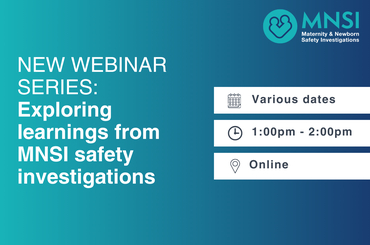The National Institute for Health and Care Research (NIHR) has recently funded the COMET trial, which is designed to evaluate the safety and efficacy of induced cooling in babies with mild encephalopathy. The trial is open to babies born at or after 36 weeks of gestation and is being conducted across 40 National Health Service (NHS) hospitals.
Key Points of the COMET Trial:
- Neurological Assessment: Babies in the trial will undergo a neurological assessment by a certified examiner between one and six hours after birth. Only those with mild encephalopathy will be eligible for recruitment. The assessment will be video-recorded and reviewed by the COMET trial team for quality assurance. The neurological exam is best conducted after the baby has been admitted to the neonatal unit, allowing adequate time for recovery from resuscitation. Passive cooling in the labor room is not recommended.
- aEEG Monitoring: All babies will undergo amplitude-integrated electroencephalogram (aEEG) monitoring for at least 30 minutes using single-channel transcranial leads. This is to support the neurological assessment and ensure compliance with BAPM guidelines.
- Trial Groups: In the COMET trial, half of the babies will receive usual care (normothermia), while the other half will receive whole-body cooling within six hours of birth. If a baby randomized to usual care develops seizures within 24 hours of birth, they may be offered induced hypothermia as part of the trial protocol.
What does this mean for MNSI referrals?
- All babies born at or after 37 weeks and received induced hypothermia at any time as part of the COMET trial should be referred to MNSI. Please mention that the cooling was provided as part of the COMET trial in the referral.
- The MNSI team will be aware that some babies might have received cooling after six hours of birth due to their participation in the trial.
- The MNSI team will review the clinical history and magnetic resonance imaging (MRI) scans of these babies to assess whether there is any evidence of hypoxic brain injury. A full investigation by MNSI will only be conducted if the family gives MNSI consent for the sharing of medical records and a hypoxic brain injury is identified on MRI, or there are concerns raised by the parents or the referring trust.
COMET Trial babies who do not require an MNSI referral:
- Babies born before 37 weeks of gestation, or
- Babies who receive usual care (normothermia) in the COMET trial.
We understand that there may be an increase in MNSI referrals from hospitals participating in the COMET trial. However, these cases can be easily identified as research-related cooling for mild encephalopathy, separate from clinical cooling for moderate or severe encephalopathy. This distinction will assist with local audits of clinical care quality, in line with the BAPM guidelines.
For more information on the MNSI referral process for COMET trial babies please email Enquiries@mnsi.org.uk clearly stating ‘COMET trial’ in the subject box or for more information on the COMET trial generally email: comet@imperial.ac.uk
Related news
Safety Spotlight: Delayed escalation in abnormal CTGs
Introducing COMPASS: A new safety tool to help understand the impact of culture on patient safety
Safety Spotlight: Prescribing and dispensing of low molecular weight heparin
